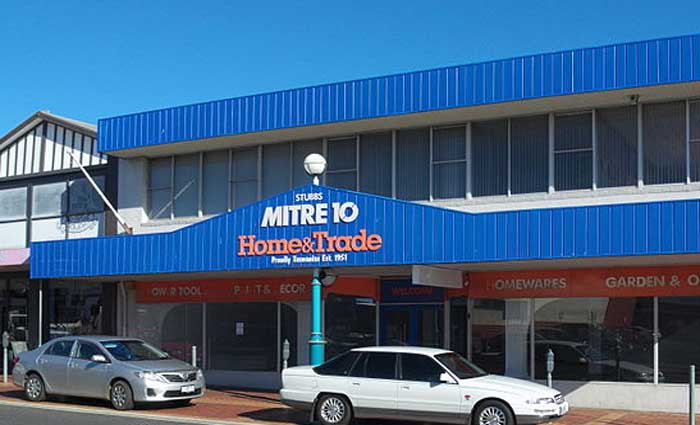Both franchisees and franchisors benefit from company-owned stores
![]()
GUEST OBSERVER
Some franchisees of hardware chain Mitre 10 are calling for an end to “company-owned” stores. These are stores owned and run by Metcash, which owns the Mitre 10 brand and is a supplier to the franchisees.
But research shows that brands with a mixture of franchised and company-owned stores are not only more profitable but also more valuable than brands that are purely franchised. Company-owned stores are a win-win for franchisees and franchisors.
As we have seen with the likes of McDonald’s and Bob Jane T-Marts, company-owned stores have various functions. They may be “flagship” stores in prominent locations, making them a marketing tool. They can also be places for experimentation with new products, technologies, store concepts, and prices.
Some franchisors have also used company-owned stores as mini-warehouses to supply other stores within a trade area. Finally, company-owned stores expand the network, lowering costs for the whole franchise and acting as a barrier to entry for competitors.
The benefits of all these measures are not always obvious or measurable by franchisees. For example, the average franchisee won’t appreciate the research and development costs incurred by a company store for a new training program or product. Franchisees only see the final result.
Tensions between franchisees and franchisors
There can be a legitimate tension between franchised and company-owned stores. For instance, company-owned stores may have greater access to resources such as local area advertising and staff training, preferential pricing and access to stock, and even favourable trading terms.
This can be unsettling for franchisees who feel they are not only competing against other brands but also their own. This is called “encroachment” and can damage the brand in the long run.
In a case between McDonald’s and a franchisee, the Victorian Supreme Court found that McDonald’s could open new stores even if they potentially impact the existing franchisee. Opening new stores creates a barrier to entry for competitors, increases sales, and thereby lowers the costs of products for both franchisees and company-owned stores. This shows that even an action that may appear harmful can have wider benefits.
The huge difference in business models between franchisors and franchisees can also be a source of tension.
Franchisees are retailers. They need to buy the products they are selling as cheaply as possible while incurring the least amount of cost. In doing so they will maximise their retail profit. On the other hand, franchisors are like a wholesaler. They rely on the profit they make from selling products to franchisees. So franchisors can afford to lose money in company-owned stores, making up the difference by selling products wholesale to franchisees.
A happy medium
But as the research clearly shows, for franchisees the benefit from company-owned stores - from marketing, research and development, and training - outweighs the negatives. Nevertheless, some things should change to keep the peace.
For starters, every company-owned store should operate like a franchise. Franchisees have been found to perform better than company-owned stores. Franchisees have skin in the game and are motivated by the bottom line of their stores.
What this means in practice is that all stores should make the same contributions to a marketing fund, buy products at the same price, and observe the same retail pricing structure. Company stores should have the same relative local advertising budget as franchisees, have the same stock-holding requirement (quantity and range), and company store managers should face the same performance criteria as franchisees.
Company stores might not perform as well at the bottom line, but overall they add value to both franchisors and franchisees.
Lorelle Frazer is Professor and Director, Franchising Centre, Griffith University.
Maurice Roussety is Lecturer- Franchising and Marketing, Griffith University.
Both are authors for The Conversation.
